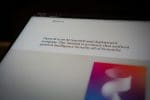In-Short
- The creator economy is being disrupted by generative AI, impacting content production.
- AI aids in content creation, from text to images and video, enhancing or replacing human effort.
- The future impact of AI on creativity could enhance, monopolize, or highlight human originality.
Summary of the Article
The creator economy has revolutionized how independent creators like writers, artists, and influencers earn by directly connecting with audiences. However, the advent of generative AI poses potential disruptions to this industry. AI models can now produce various content forms, from text to images and videos, with simple prompts, challenging the notion that creativity is a uniquely human trait.
Generative AI, popularized by tools like ChatGPT, Midjourney, and Google DeepMind’s Veo, assists in content creation across different mediums. In gaming, AI technologies like those used in My Pet Hooligan enhance user experience by creating unique in-game characters with distinct personalities. Buzzfeed’s AI tools for personalized quizzes and recipe suggestions are other examples of AI’s role in content creation.
The impact of AI on the creator economy could unfold in three ways. First, AI could serve as an enhancement to human creativity, aiding in tasks without replacing the creative process. Second, AI might monopolize creativity, leading to a potential decline in human-driven innovation and a homogenized aesthetic. Lastly, human creativity could become more valuable, with a preference for original human content over AI-generated work.
Ultimately, the most likely scenario is one where human creativity remains irreplaceable, with AI serving as a tool that complements rather than replaces the human touch in creative work.
Explore the Original Source
For a deeper dive into the evolving relationship between AI and user-generated content, read the full article here.
Footnotes
Image credits and external source links are included within the article’s content where applicable.










